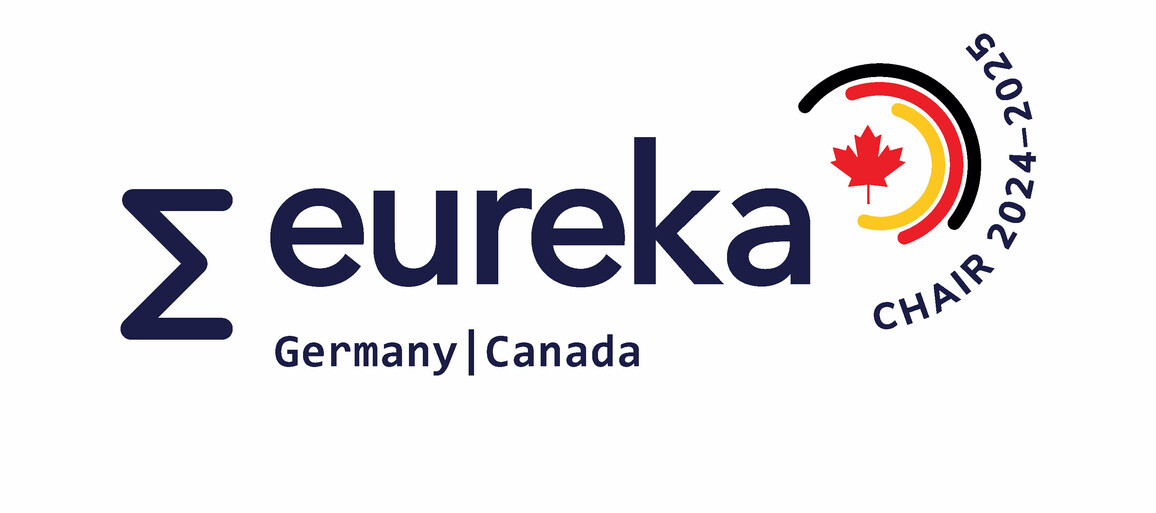Contents
Eureka innovation network
Science-industry cooperation requires one thing in particular, namely flexibility.
Eureka enables such flexibility. The network supports collaborations in all fields of technology without restricting the topics that may be addressed. This means that the partners in Eureka projects are largely free in designing their cross-border cooperation. This flexibility makes Eureka an important driver of cooperation in research and innovation worldwide.
Eureka is the world’s largest intergovernmental network of international and European collaborations in research and innovation. It supports companies and science institutions in cross-border cooperation on market-oriented projects. Germany is one of the founding members of Eureka. Represented by the Federal Ministry of Education and Research (BMBF), Germany is one of the most active countries and a much sought-after partner.
Canadian-German Eureka Co-Chair 2024/25
[Textblock_Start]
From July 2024 to June 2025, Canada and Germany co-chair Eureka. This is the first time in its 40-year history that this innovation network is co-chaired by two countries. In view of the major global challenges, Germany and Canada pursue the joint goal of strengthening innovation and transfer across borders and continents. The Eureka Co-Chair provides excellent opportunities in this regard. Germany’s and Canada’s top priorities are to support global networking among policy‑makers, industry and science communities with regard to circular value creation and to increase the synergies between Eureka and other European and international innovation ecosystems.
Find out more about Eureka 2024/25
Cooperation in all fields of technology
The fundamental principle of Eureka is an application-oriented, open-topic approach. Eureka projects develop new products, processes and services in all areas of technology. Small and medium-sized enterprises, large companies, universities and research institutions can participate in Eureka projects. They benefit from:
- Access to funding, investments, and European and international markets.
- Freedom: Project participants decide themselves on the topics and scope of their cooperation. Project proposals can be submitted at any time. In addition, thematic funding calls are published.
- Simple rules for access and participation.
The most important Eureka instruments
Network projects
Network projects are the traditional Eureka instrument. They are particularly flexible. At least two partners can join forces and submit a project proposal at any time. No restrictions are imposed with regard to topics in accordance with the principle of technology neutrality.
In addition, there are specific Eureka funding calls. They involve cooperation between ministries or funding agencies from two or more countries in the Eureka network. They jointly publish calls on selected topics and provide national funding for them.
Globalstars projects are a special type of network projects. They result from funding calls under which the Eureka countries cooperate internationally with partner countries that are not yet part of the network.
Eurostars
The successful Eurostars funding programme targets small and medium-sized enterprises in particular. The aim is to encourage them to cooperate in research and development projects at European level. Eurostars operates in accordance with the Eureka principle: Eurostars projects are open to all technologies and target the development of an innovative product, process or service.
The current third programme phase (Eurostars 3) is part of the European Partnership on Innovative SMEs. This partnership is co-funded by the European Union under Horizon Europe. Since 2022, the European Commission has also been funding another programme, Innowwide, under this umbrella which supports SMEs and start-ups in accessing international markets.
Eureka Clusters
Eureka Clusters are large, industry-driven public-private partnerships. They focus on technology areas which are of particular importance for Europe’s competitiveness. There are Eureka Clusters on software innovations, communication technologies, microelectronics and nanoelectronics, among others.
Thematic funding calls are published regularly under the umbrella of the Eureka Clusters. Companies and science institutions from Germany can participate in them in collaboration with partners from other countries.
Further measures
In addition to project funding, Eureka carries out targeted measures to provide SMEs with easier access to knowledge, investments and international markets. This includes training courses, workshops and match‑making events.
Eureka projects - FAQ
Who is my contact?
The BMBF has set up a national Eureka Office as the central contact point. The staff at the Eureka Office answer all questions about Eureka. They advise and support companies and science institutions across the entire project life cycle – from the idea to implementation.
Where do I find information about the calls?
The Eureka Office provides information about current calls and the submission of proposals on its website. More detailed information about the Eurostars funding programme can be found on a separate website for companies, research institutions and universities. All current calls are also published on the website of the Eureka Secretariat in Brussels. The project partners also submit their joint proposals via this website. Proposals under calls of the Eureka Clusters are submitted via the websites of the individual Clusters.
How do I finance participation in a Eureka project?
Fixed amounts of funding are available for many Eureka calls. In the case of Eurostars projects, all German participants are funded by the BMBF. Furthermore, there are flexible options for financing participation in a Eureka project. These include not only specific calls but also numerous other programmes of the Federal Government and the Länder. The Eureka Office provides advice for applicants regarding the appropriate funding sources.
What rules must I observe?
In all cases, the rules of the respective funding institution apply. Example: If your contribution to a Eureka network project is funded by the BMBF, you must apply the BMBF’s funding rules.


